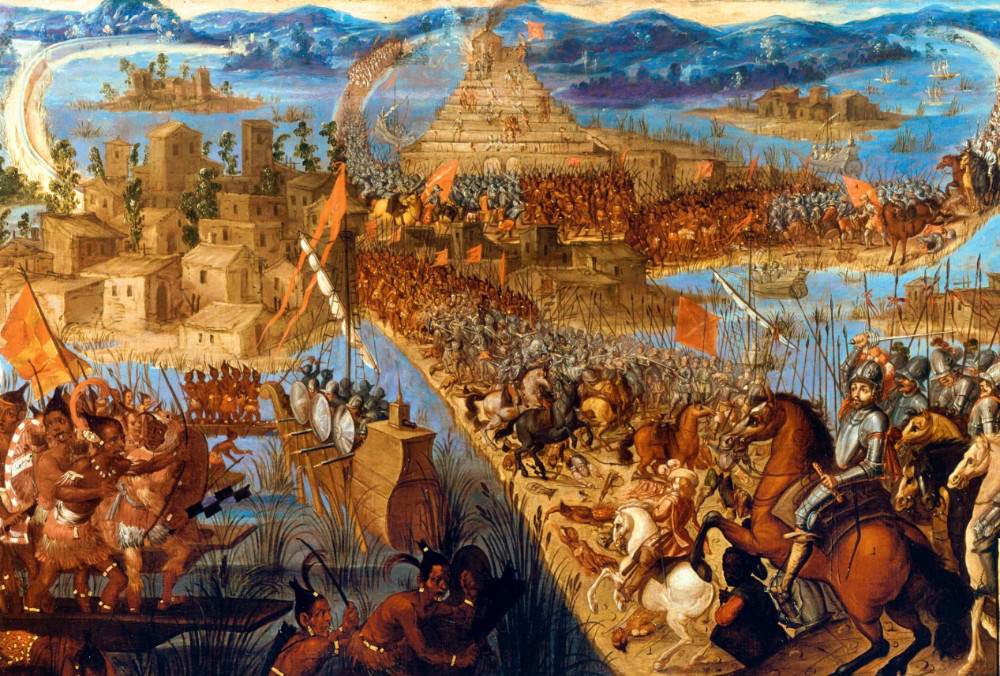
Legend of the Fall
In 1521 Spanish forces, supported by thousands of Indigenous allies, overran Aztec resistance to claim Tenochtitlán, the heart of the Aztec empire. The “fall” of the great city-state came after two years of a smallpox epidemic, political betrayals and massacres.
Now, 500 years later, UC Santa Barbara’s Art, Design & Architecture Museum will present “Amid a Pandemic: 1521-2021 Lecture Series,” bringing discussion and context to the colonial invasion that still reverberates throughout the Americas. The series will culminate in an exhibition, “Amid a Pandemic, After the War: 500 Years Later,” by artist Sandy Rodriguez.
The first lecture in the series, “500 Years Later: Recontextualizing Tenochtitlán,” will be Thursday, Feb. 26, from noon to 2 p.m. The roundtable discussion will explore our historical understanding of the Spanish invasion of the Americas, the resilience and resistance of Indigenous people despite settler colonialism, and the impact of these events on our contemporary society.
Panelists will include Celia Herrera Rodríguez, a lecturer in UCSB’s Department of Chicano/Chicana studies; Felicia Rhapsody Lopez, an assistant professor of Chicanx studies and of English at UC Merced; and Allison Caplan and María Lumbreras, assistant professors in UCSB’s history of art and architecture department.
Six lectures are scheduled through the end of 2021, said Rachel Straughn-Navarro, academic coordinator for the AD&A Museum.
“I hope this lecture series helps people recognize and understand the impacts historical colonialism has on our society today and helps to challenge many common assumptions about the supposed ‘fall’ of Tenochtitlán in 1521,” Straughn-Navarro said. “The city and its people did not go anywhere; they are both still fully present in Mexico City now. Indigenous peoples and their cultures all over the Americas, and all over the world, are present through their struggles and resistance against colonization, continuing their culture and knowledge today.”
The lecture series came out of discussions Straughn-Navarro had with Sandy Rodriguez and UCSB faculty and staff about the upcoming exhibition.
“Because COVID has caused so many uncertainties about when the exhibition could open,” Straughn-Navarro said, “we wanted a way to call attention to this landmark anniversary throughout 2021 regardless of what happens with the exhibition.”



